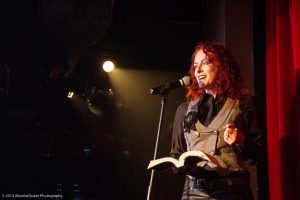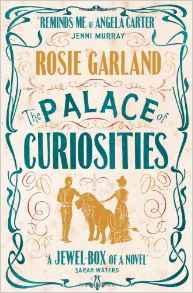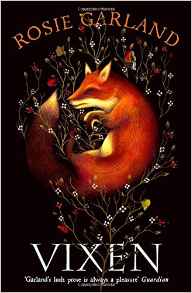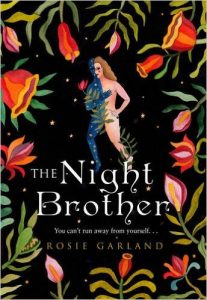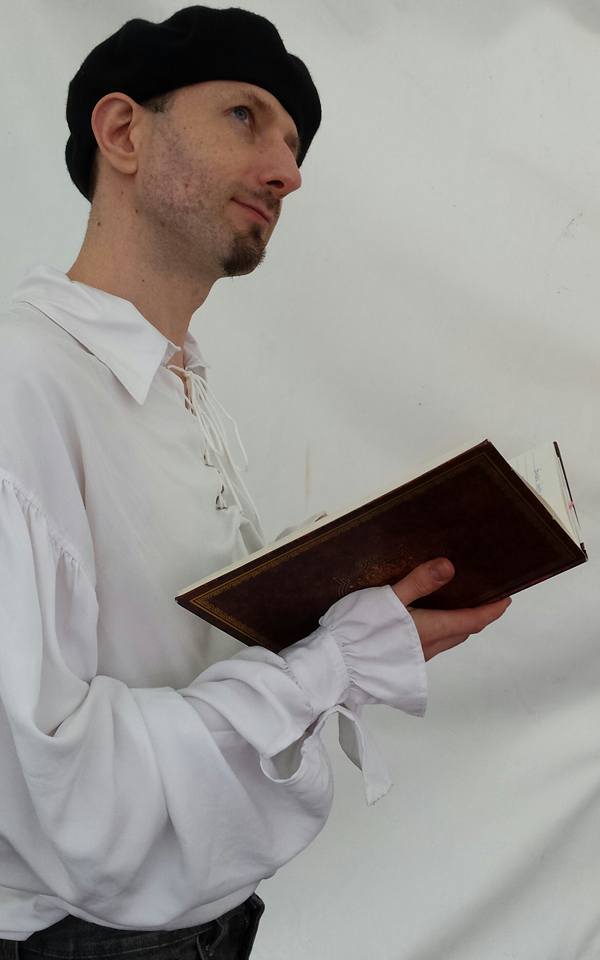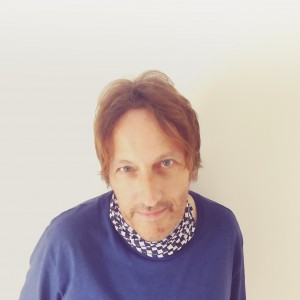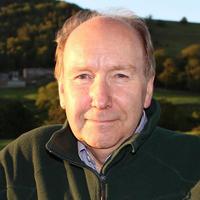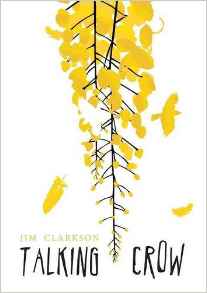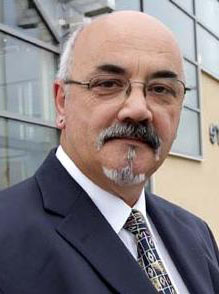As In Judy (Flapjack Press) is your new collection of poetry, which is out in December. What kind of themes did you explore and what inspired you at the time?
I’ve always been something of a cuckoo in the nest! And that’s what gets my mojo working. I write about people who won’t (or can’t) squeeze into the one-size-fits-all templates on offer and the friction that occurs when they try.
I’m not interested in creating narrow worlds. Increasingly, we seem to inhabit a world where ‘queer’ or ‘unusual’ is anything that strays a millimetre from mom ‘n’ pop, church-sanctioned procreative sex. Personally, I don’t think ‘normal’ exists. It’s not real, it’s just common.
Sarah Waters described you as a ‘real literary talent’. As well as novels, you have written many award-winning short stories. Can you talk us through your creative process? Do you have a clear idea of what you want to say, or does your writing evolve organically? What is it about literature that you love?
I am very grateful for the wonderful things people have said. I’m trying very hard to let the compliments sink in.
However many #MyWritingProcess blogs I read, I’m inspired and warmed at the variety of creative strategies we use to get ourselves writing. I don’t think it matters at all if someone is a morning/afternoon/nocturnal writer, or whether you prefer a pencil, an iPad or grind your own ink from freshly roasted acorns.
It’s more important to find what works for you. I don’t have a single process. I’m pretty flexible. Let’s face it, there are 1000 ways to derail my writing (shopping, housework, TV, social networking, etc, let alone my inner critic screaming how useless I am and stopping me hearing those compliments!). Anything that gets me writing and not putting it off is the key.
I’m not alone in being terrified of the blank page and a routine with small steps helps get the creative juices flowing. I’ll start a writing day with warm-ups (e.g. journaling, free writing). Then it’s easier to take on a heftier task like editing a chapter. An athlete wouldn’t run a marathon from cold. My take is that a novelist functions in much the same way.
Your novels The Palace of Curiosities and Vixen are beautiful works of art, inside and out. I remember seeing Vixen for the first time at the Darkness and Light: Exploring the Gothic exhibition at the John Rylands Library in Manchester last year, thinking, what a gorgeous cover! After I read Vixen, the cover seemed to encapsulate the emotions portrayed throughout the novel. How important do you think book cover design is and do you always have a clear idea of each cover?
Thank you so much! And you’ve guessed it: I am passionate about book cover design. Ezra Pound said ‘a book should be a ball of light in the hand’. Why limit that to the words? A good book delights, engages, surprises, and even challenges a reader. I love it when a cover does that too. It can intrigue, press itself into the imagination, and stand out on the shelf. It can whet the appetite. Follow you around. Not to mention spur the action of picking the book from the shelf…
The cover of Vixen is a beautiful example, designed by Alex Allden at HarperCollins from an original painting by Scottish artist Lindsay Carr. I am not a designer so I steer well clear of that department. I have absolutely no input into the design – I simply want to love it. My task is to get the words right, and that’s what I stick to.
The cover for my next novel, The Night Brother, is proving to be very exciting – the cover design commission was chosen for the Bridgeman Studio Award 2016. It is rare and exciting to have a new piece of artwork commissioned for a work of fiction. I was stunned to discover that the callout received almost 1000 entries, with 20 countries represented. I’m moved that so many artists found their imagination sparked and wanted to see their work on the cover of my book.
I am delighted that Romanian artist Aitch has won the commission. I really warmed to the interplay of darkness and intense colour in her work. After all, night can be the backdrop against which fireworks burn their brightest.
You have been described as ‘one of the country’s finest performance poets’. Can you please tell us about your journey as a performance poet? What advice would you give to aspiring performance poets?
One of my happiest memories is of being read to as a small child by my grandmother. I like to offer that simple pleasure to grown-ups, where words leap off the page and take on a magical life of their own. Personally (and it is my personal opinion) all I ask from a poem is that it speaks to me. I don’t demand that it rhyme, or not rhyme. Just that it connects with me in a way that touches me as a human being.
I know it’s not every writer’s cup of tea, but I love the buzz of interacting with readers, whether that’s at a festival, in a bookshop, or a museum at midnight. So, one suggestion for aspiring poets is to get out there and support spoken-word events (throw a rock and you’ll hit a poetry or live literature event where you are). Learn from the good poets as well as the not-so-good ones. Take a deep breath and read at an open mic. Keep going.
And as for advice, to quote W.P. Kinsella: ‘Read! Read! Read! And then read some more.’
Which themes keep cropping up in your writing? What do you care about?
I guess this connects with question 1!
There always have been, and always will be, creative folk who explore alternative themes. It’s never been an easy path, and that seems to be part of the territory. However, I don’t explore these themes as some kind of pose, or to be challenging for the sake of it. I write what I write because that’s what comes knocking.
Sure, I can produce something that doesn’t fire me up (I’ve tried), but my heart’s not in it. There’s the rub: I write where my passions reside. I’ve chased myself in circles trying to second-guess what a publisher ‘might’ want and it was a disaster. There’s no point twisting yourself into shapes trying to please. Maybe it’s one of the reasons it took me so long for my novels to get published.
If you could change one thing about the world, what would it be?
Be excellent to each other. Never more important than now…
Palace of Curiosities is set in the 1850s. How did you start researching the period? Have you any advice for new writers? What is it about Victorian life that appeals to you?
Ah, the ‘research’ question! Research is fun, fab, and, like high-fat food, best taken in moderation. The way I see it, the art of good research is when the reader barely notices its presence, only that everything feels right. Of course, the basics must be in place (no iPods in Victorian times). Of course, I need to research the period assiduously. But it’s vital to know when to stop.
Personally, I don’t care if an arrow is fletched with swan feather, eagle feather or magpie feather. I want to know who is shooting it, who dies, and why I should give a damn. To quote Tom Clancy: ‘Tell the goddam story’.
What are you reading at the moment? Can you recommend any book diamonds?
I love recommendations from friends, and here are two recent ones. Sharon Olds has just published a collection of Odes. Oh my goodness – I am blown away by them.
And at the other end of the scale, I’m reading a sci-fi classic Grass by Sheri S. Tepper. I’ve never come across this author before, and she writes wonderfully. I’m already drawn in by the characters, and I’m only three chapters in.
Can you tell us a bit about your forthcoming novel The Night Brother, which is out in June 2017?
Thank you for asking! My next novel, The Night Brother, is due out June 2017, with The Borough Press. To say I’m excited is the understatement of the year.
The novel is set in Manchester. I’ve wanted to write a novel based there for a long time. I love the place, with its industrial heritage, amazing architecture, and radical history.
Once again, I have created a story that takes place in the past; this time in and around 1910. In the early part of the 20th century, Europe was teetering on the edge of the upheaval of a World War, the rise of new political movements, not to mention the struggle for women’s rights. I’ve picked a moment right before it all tips over. I’m fascinated by times when the world is on the cusp of change.
The two central characters are siblings: Herbert – who prefers the nickname Gnome – and Edie. As in my previous two novels the characters speak in first person. I like to let my creations tell their own story, rather than getting in the way myself.
I do feel shy about bigging up my work (surprise!) so I’ll let my editor take over – ‘Edie and Gnome bicker, banter, shout, and scream their way through the city’s streets, embracing its charms and dangers. But as the pair mature, it is Gnome who revels in the night-time, while Edie is confined to the day. She wakes exhausted each morning, unable to quell a sickening sense of unease, and confused at living a half-life.
Reaching the cusp of adulthood, Edie’s confusion turns to resentment and she is determined to distance herself from Gnome once and for all. But can she ever be free from someone who knows her better than she knows herself?
Exploring the furthest limits of sexual and gender fluidity, this is a story about the vital importance of being honest with yourself. Every part of yourself. After all, no-one likes to be kept in the dark.’
And it is already available to pre-order! Here’s the link (blatant plug alert):
Have you a favourite memory of your days as a vocalist with The March Violets?
It’s a difficult question as there are so many to choose from. But as you’re twisting my arm, here goes. In 2007, three of the original four band members – myself, Si Denbigh and Tom Ashton – talked about reforming the band to record some new songs and put on a one-off show.
We had no idea if anyone out there was interested. After all, it was 25 years since the last March Violets gig. Let’s face it, if no-one had turned up, we’ve had got a clear answer. But the Homecoming gig in Leeds, December 2007, was an astonishing success. Hundreds of people, all happy to see us back on stage, and none of them shy about showing their appreciation. They loved the old numbers, and even more delightfully, the new material too. What’s not to like?
Added to that, our fans old and new made it very clear that they weren’t about to let us go away again. So we started touring and recording, and the rest is history. To this day we haven’t seen or heard a bad review. Or even a lukewarm review. That’s a hell of an achievement – and a clear message that people are pleased to see us back. Very pleased indeed.
Tell us about one of the best days of your life.
It’s got to be the day the editor of Mslexia, Debbie Taylor, phoned to tell me I’d won the Mslexia Novel Competition with The Palace of Curiosities. Not because I think it’s the best thing I ever wrote (it isn’t), but because it was the day that changed everything.
Because it’s been a long, and at times demoralising, trek to publication.
Here’s the short version: I was with a reputable London agency for twelve years, and gave them four and a half novels. But however hard I tried (and did I try), nothing seemed good enough. My stuff was too weird, too odd. My agent stopped replying to my emails. My confidence was shot. I was at the point of giving up on writing fiction.
I realised that if I was going to get anywhere it would be under my own steam. In 2011, Mslexia magazine announced their first ever Novel Competition. Go on, I said to myself. One last fling. I dusted off novels #3 and #4 and sent them in. Both made the shortlist of ten. I was astounded: maybe I could write fiction, after all. Then novel #4 (published as The Palace of Curiosities in 2013) won outright. Within a week I had an enthusiastic new agent. Within a fortnight she had seven publishers in a bidding war over a novel I’d been told was unpublishable.
If I learned anything it is to keep going, especially when it’s tough. Someone out there loves your work – but they need to see it. So get it out there. Do it now.
Who inspires you and why?
How long have you got? I’ve been asked this question a gazillion times and I’ve yet to find a snappy answer. It’s impossible! Which is good. I’ve been inspired by so many people working in such a variety of art forms that there simply isn’t room to list them.
What is next for you? What are your plans?
2017 already looks like a busy year and I wouldn’t have it any different. I’m not happy unless I’m engaged in a number of projects – although I’m still learning the art of getting that number right…
From December 2016 onwards there are launch events across the UK for As In Judy.
There will also be a book tour to launch The Night Brother in June 2017. I can’t wait.
I’ve also just found out that I have been awarded a Hawthornden Fellowship for 2017! It’s a great honour. I’ll be in a Scottish castle on a writer’s retreat during March and April. Who knows what I might come up with. Watch this space!
If I didn’t sing, I’d be miserable. As well as The March Violets, I’m working on a brand new musical project with multi-instrumentalist Éilish McCracken (Rose McDowall, Sgt Buzfuz, Slate Islands, Ida Barr). We are calling it the Time-Travelling Suffragettes! I’m inspired by the enduring influence of Music Hall and its power to subvert whilst being thoroughly entertaining. So, armed with banners, a twinkle in the eye and a spanner for throwing into the works, we have travelled to the present day to perform updated versions of nineteenth-century classics such as ‘The Boy I Love Is Up In The Gallery’, ‘I’m Shy Mary Ellen’ and ‘Hold Your Hand Out, Naughty Boy’ – and many more. We had our debut in November at Cherie Bebe’s Burlesque Revue, and the audience loved it. There will be more.
Drop by my pretty new website and check out the gig page!

